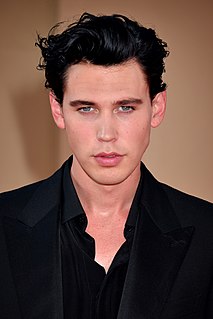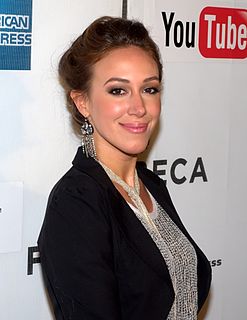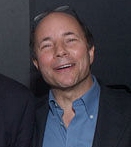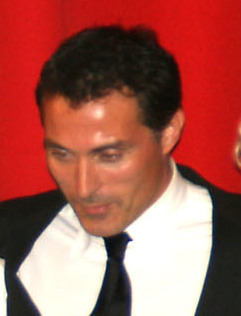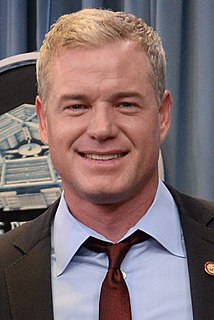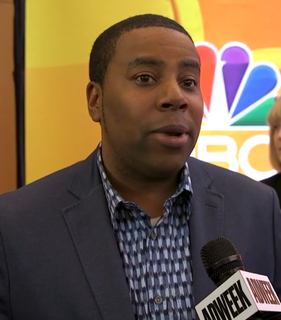A Quote by Austin Butler
Film and television are just different. Film is cool because its a complete package. You know the beginning, middle, and end. You can plan it out more, which I like. But with television you get a new script every week, so its constantly a mystery as to what youre going to be doing.
Related Quotes
I'm such a huge fan of television and what's happening in television, right now. You are able to visit characters and visit a story, week to week, push things in a different way than you can in a film, and you are able to go deeper, simply because you have more time. I'm just excited to do that. It's always good to do new things.
The thing about acting is even if you get technically more skilled at what you do, every time you begin a film or a play you're terrified. You don't know if you're going to pull it off. Every film and every story has its own set of challenges. I've never felt like, oh yeah, that's it, nailed it! You can never sit and rest. That's why it's such an exciting job. It's beginning again every time you begin again. New story, new character, new place, new time, new director. It's like moving to a different planet and trying to figure out how to live there.
The first thing I say when people ask what's the difference [between doing TV and film], is that film has an ending and TV doesn't. When I write a film, all I think about is where the thing ends and how to get the audience there. And in television, it can't end. You need the audience to return the next week. It kind of shifts the drive of the story. But I find that more as a writer than as a director.
New media has made it possible for filmmakers like me to get their message out. No big Hollywood studios are needed anymore to make and release a film. More and more people are watching movies and television online than going to the movie theater because of costs. This freedom gives me the opportunity to create the film I want to be seen and heard.
It makes sense that it's so different from film and television, because it's so in-depth. As actors, when we're in film or television, we can have transcendent moments and we get to work with really creative and incredible people, but it's such a small percentage of your time that's about your process.
When you're doing a play, you're onstage, there's no stopping or starting, there's no stopping to reposition for the camera or have a check done. You're there 'till the end of the show. What that gives you is a great gift, which is to command the audience, and you get to play with your script and your fellow actors. Every night, it's different. Hopefully it goes well and you get a great response. But the technique that you have to have on film or television is so delicate. It's fine-tuning. That is very different from being onstage, but they both have important skill sets.
The reason I live in America is because I mean literally every six or seven years I've done something in England. The last lead I had in an English film I did was 1998. So that's why I live here. It's because I get more work. I'll travel back for radio, you know what I mean. I've just got to consider myself to be living in the middle of the ocean, and that way I have a really nice career, if I'm prepared to do television, radio, theater, and film.
